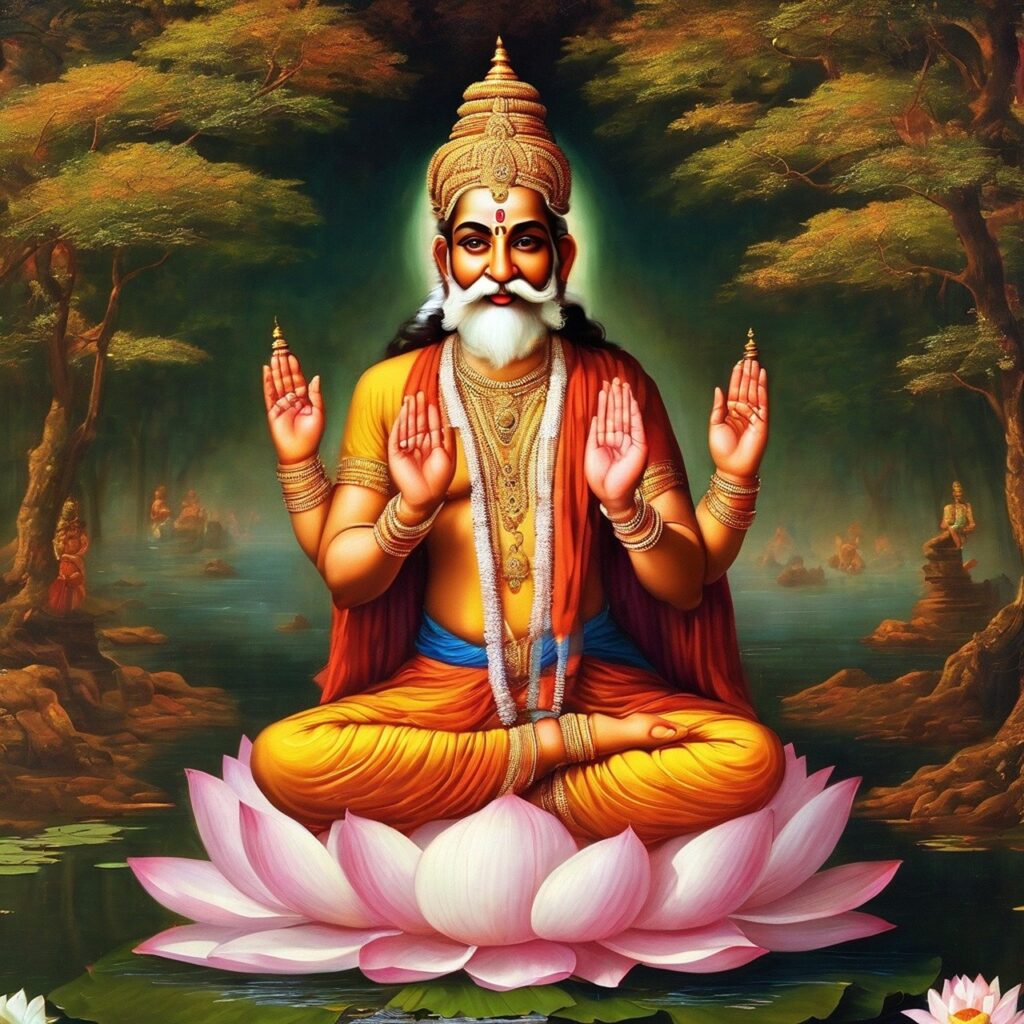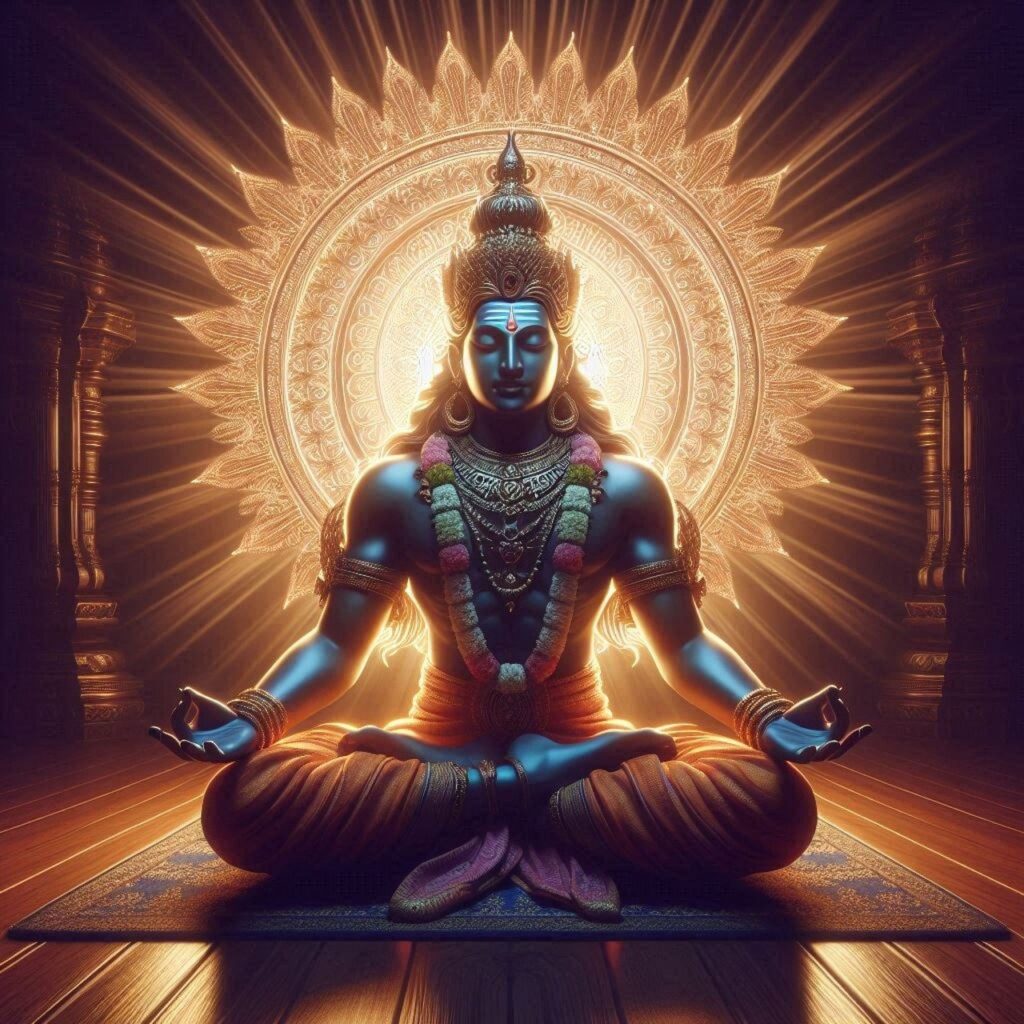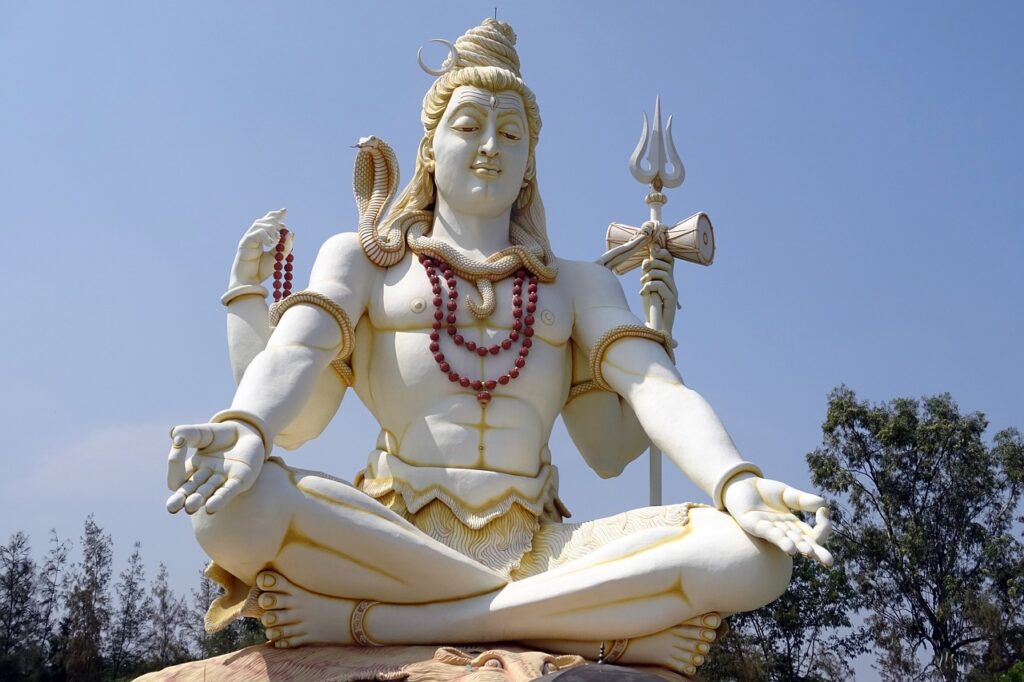In Hinduism, there are countless gods and goddesses, each representing different aspects of life, the cosmos, and the divine. But if you look closely, three gods stand out—Brahma, Vishnu, and Shiva. Together, they form the Trimurti, which means “three forms” in Sanskrit. Each god in this sacred trio holds a crucial role in the never-ending cycle of the universe. While Brahma is the creator, Vishnu is the protector, and Shiva is the destroyer, their functions are all interconnected, working together to keep the world in balance.
Brahma: The Creator Who Brings the World to Life

Brahma is the first god in the Trimurti, and as you might have guessed, he’s known as the creator of the universe. Imagine being the one who starts it all—who paints the sky, shapes the mountains, and breathes life into the creatures of the world. That’s Brahma. According to Hindu belief, Brahma created everything from the cosmic ocean, laying the foundation for the world as we know it.
He is often depicted with four faces, each one representing one of the four Vedas, the sacred texts of Hinduism. His many faces show that Brahma has all-encompassing knowledge and wisdom, essential to the creation process. But interestingly, even though he created the world, Brahma is not as widely worshipped as Vishnu or Shiva. Perhaps that’s because creation is just the beginning—the world has to be cared for and ultimately transformed.
Vishnu: The Guardian Who Keeps the Balance

Next, we have Vishnu, the second god in the Trimurti. Vishnu is known as the protector of the universe. His job? To make sure the world stays balanced, harmonious, and safe from chaos. Think of him as the universe’s safeguard—always stepping in to protect humanity whenever things go wrong.
Vishnu is the god who takes on various incarnations (avatars) like Lord Rama and Lord Krishna whenever evil threatens to disrupt the balance. Whether it’s battling demons or teaching moral lessons, Vishnu’s presence ensures the world remains in a state of peace. He is often depicted with blue skin and four arms, holding a conch shell, a discus, a mace, and a lotus. These symbols represent his power to protect, purify, and bring wisdom.
Shiva: The Transformer Who Makes Way for Renewal

Finally, we have Shiva, the third god of the Trimurti. Known as the destroyer, Shiva may seem like the villain of the group, but his role is far from negative. In Hindu philosophy, destruction is not an end—it’s simply a part of the cycle. For new things to emerge, the old must be cleared away. That’s where Shiva comes in.
Shiva’s destruction is what makes room for renewal and regeneration. Whether it’s wiping away negative energies or clearing the old to make way for the new, his role is to transform the universe. While he’s often depicted as an ascetic meditating in the mountains, Shiva’s fierce side is also shown through his cosmic dance, the Tandava, which represents the endless cycle of creation, preservation, and destruction.
The Harmony of Brahma, Vishnu, and Shiva
When you look at Brahma, Vishnu, and Shiva together, it’s clear that they form a perfect balance. Brahma’s creation, Vishnu’s preservation, and Shiva’s destruction are not separate acts—they’re all connected. Life is a cycle, constantly moving from birth to death and back again. Each of these gods plays a role in keeping that cycle flowing smoothly, ensuring the universe continues to evolve.
Brahma, Vishnu, and Shiva show us that life is a never-ending cycle—one of creation, transformation, and rebirth. Just like the universe, we too go through cycles in our own lives, whether it’s the beginning of a new chapter, the preservation of what we hold dear, or the need to let go and start fresh. Understanding the roles of these divine powers can inspire us to embrace change and find peace in the natural rhythms of life.



